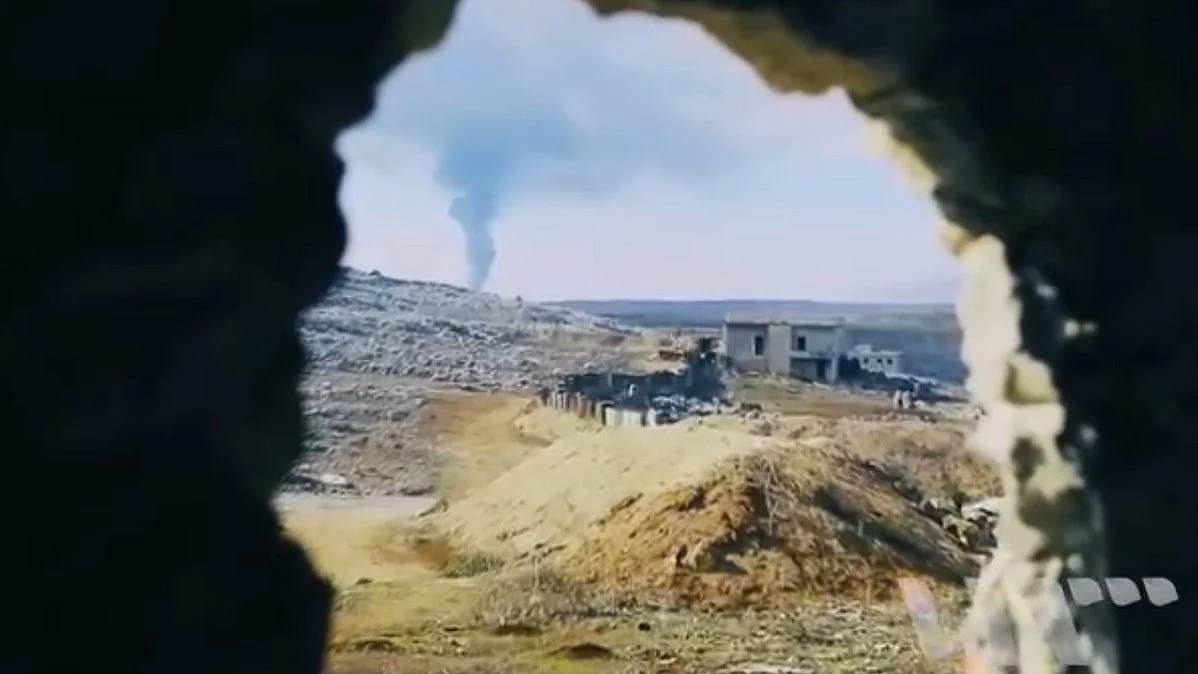Israeli incursion into Syria leaves 13 dead, 25 injured
The raid hits the quiet town of Beit Jinn, sending families fleeing into the cold morning haze as drones and artillery thrum overhead

In a fresh wave of violence washing over the Damascus countryside, at least 13 people — among them two children — have been killed and 25 others wounded as Israeli forces mounted yet another armed incursion into Syrian territory at dawn, according to Syrian state media.
The raid struck the quiet agricultural town of Beit Jinn, sending terrified families fleeing into the cold morning haze as the sky throbbed with the sound of drones and artillery, the Al Jazeera reported.
The Syrian Arab News Agency (SANA) reported that the remains of at least five Syrians, including the two young victims, were taken to the Golan National Hospital in al-Salam city in Quneitra. Israeli drones continued to hover menacingly overhead long after the strikes, compounding fears of a renewed round of bombardment.
Rescue work, too, was plunged into chaos. The Syrian Civil Defence said its teams were unable to enter Beit Jinn to retrieve the wounded, as Israeli fire targeted even the slightest movement on the ground. Local sources confirmed that the fatalities were overwhelmingly civilian — farmers, shepherds, families still reeling from years of war yet unprepared for the brutal return of cross-border violence.
Since Israel widened its occupation of parts of southern Syria after President Bashar al-Assad’s ouster in December 2024, military incursions have grown increasingly bold, frequent and intensely destructive, reshaping life along the border under the shadow of an expanding conflict.
Al Jazeera’s Osama bin Javaid, reporting from the region, said residents insist there are no Hezbollah or militia fighters in the area — only ordinary Syrians. “People there say they are simply farmers and shepherds,” he noted. “The incursion has come as a shock.”
Israel’s military confirmed that six of its soldiers were wounded in the exchange of fire — three seriously — and said the operation had “concluded,” with all suspects either arrested or “eliminated.” Yet its forces remain deployed across the region, vowing to press on against what it describes as any emerging threat. Israeli outlet Yedioth Ahronoth reported that an Israeli unit was briefly trapped inside Beit Jinn, prompting heavy air and artillery strikes to enable its extraction — a rescue that left several Syrians dead.
Incursions of this kind have become common in Quneitra province and the Damascus hinterland, where Israeli tanks now man checkpoints, set up gates, stop and search residents, and — according to Syrian authorities and human rights groups — abduct civilians under the guise of “security operations”. As many as 40 Syrians have been detained in recent weeks.
The conflict’s geography is rooted in a long, volatile history. Israel seized the Golan Heights during the 1967 war and has occupied it ever since. After the fall of Assad, Israeli forces pushed further, breaching a 1974 disengagement agreement and carving out a de facto “buffer zone,” including the strategic summit of Jabal al-Sheikh. This year alone, Israeli bombardments — including strikes in Damascus — have intensified, killing Syrian soldiers and even hitting the Ministry of Defence.
Tensions flared further earlier this month when Israeli Prime Minister Benjamin Netanyahu appeared alongside troops on Syrian soil — a visit widely condemned in Damascus and viewed as a sign that Israel is uninterested in any path toward détente despite U.S. nudging.
Meanwhile, Syria’s fledgling post-Assad government, led by President Ahmed al-Sharaa, is struggling to maintain stability in a nation emerging from 14 years of civil war. Beset by Israeli raids, sectarian unrest and economic fragility, Damascus is attempting to restore order even as it returns to the international stage. Just a day before the latest attack, al-Sharaa delivered a televised address urging Syrians to commemorate the anniversary of the uprising that overthrew Assad — a symbolic milestone now overshadowed by renewed bloodshed.
The Israeli dawn raid on Beit Jinn, tearing through homes and harvest fields, has once again plunged this borderland into grief and uncertainty — a grim reminder that for many Syrians, peace remains perilously out of reach.
Follow us on: Facebook, Twitter, Google News, Instagram
Join our official telegram channel (@nationalherald) and stay updated with the latest headlines
